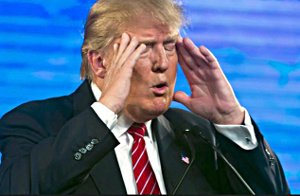The political decision of whether or not the US is going to attack North Korea rests at least in part on the effectiveness of the $40 billion US missile defense system, and its ability to shoot down retaliatory strikes from North Korea. While the Pentagon has insisted they have 100% confidence they can do so, experts are warning the system probably doesn’t work.
 Indeed, the Union of Concerned Scientists has even issued a statement warning that Pentagon confidence is not only unwarranted from the data, but may be misinforming politicians making decisions on starting a war on the basis of their defensive capabilities.
Indeed, the Union of Concerned Scientists has even issued a statement warning that Pentagon confidence is not only unwarranted from the data, but may be misinforming politicians making decisions on starting a war on the basis of their defensive capabilities.
The experts warn that there has been very limited testing of the missile defense system, and even in those tests, which are in ideal situations and not real world conflicts, the system has only succeeded three times out of nine. In a real world scenario, it would likely be even less dependable.
And while political officials and the Pentagon both play up the system, even the GAO has faulted the system for insufficient testing. The program has long survived because it was never likely to be used, and its ineffectiveness wouldn’t matter if it’s just sitting there soaking up taxpayer dollars. As the US considers attacking North Korea, however, the system could quickly be put to real life tests.


